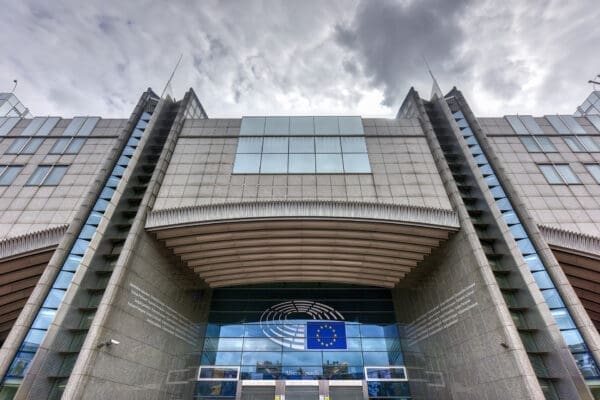The EU Finance Ministers at ECOFIN reached a milestone agreement to modernize VAT with the VAT in the Digital Age (ViDA) package during the November 5th, 2024, meeting. This legislative package introduces digital reporting requirements, enforces VAT collection on digital platforms, and expands the VAT one-stop-shop (OSS) system. After nearly two years of negotiation, ViDA addresses VAT fraud, simplifies compliance, and supports fairer taxation across digital and traditional business sectors.
Bringing VAT into the Digital Age
ViDA aims to make VAT administration more efficient and resilient against fraud. Key features include real-time e-invoicing, streamlined VAT obligations for digital platforms, and an expanded OSS framework that simplifies VAT compliance across EU member states. These measures are expected to enhance transparency, reduce tax fraud, and ease compliance for businesses, especially small and medium-sized enterprises (SMEs) operating across borders.
Key elements of the ViDA Package
1. Real‑time digital VAT Reporting with e‑invoicing
One of the most significant changes introduced in ViDA is the mandate for digital VAT reporting through e-invoicing. Beginning in 2030, businesses must issue e-invoices for all cross-border B2B transactions. This system will provide tax authorities immediate access to transaction data through a centralized EU platform, closing gaps that previously allowed VAT fraud to thrive.
Key points:
- Immediate data collection: e-invoicing enables real-time monitoring, improving fraud detection and compliance across the EU.
- Standardized systems: e-invoices will follow EU-wide standards, creating a unified system across member states by 2035.
This shift from periodic reporting to real-time data sharing represents a significant step toward transparency and efficiency. The unified approach will help member states tackle VAT fraud while reducing compliance burdens for businesses operating across borders.
2. VAT collection obligations for digital platforms
Digital platforms in the EU, particularly those facilitating short-term rentals and passenger transport, must now act as “deemed suppliers” for VAT. This responsibility ensures that VAT is collected on services from providers who might otherwise not be VAT-registered, promoting fairer competition with traditional businesses.
Key Points:
- Platform responsibility: Platforms must collect and remit VAT for non-registered service providers, capturing VAT that might otherwise be lost.
- SME exemptions: Member states have the discretion to exempt SMEs from this rule, which eases the administrative burden for smaller providers.
This requirement reduces tax leakage in the platform economy and supports fair competition between digital and traditional service providers. This document specifies platforms’ obligations under ViDA.
3. Expanded VAT One‑Stop‑Shop (OSS)
The ViDA package also expands the existing OSS framework to simplify VAT registration and compliance further. Initially designed for cross-border sales, the OSS now includes certain domestic transactions, allowing businesses to manage VAT obligations across multiple EU countries through a single online portal.
Key Points:
- Broader coverage: The OSS now supports cross-border and domestic sales, simplifying VAT management for EU and non-EU transactions.
- Reverse charge mechanism: ViDA broadens the reverse charge mechanism, allowing VAT liability to shift to the buyer when the seller isn’t VAT-registered in the buyer’s member state.
With these OSS expansions, businesses can meet VAT obligations without needing multiple registrations across EU states, a change that benefits SMEs operating across borders. This directive outlines the OSS system’s new scope and benefits; more information can be found here.
Enhanced data sharing and centralized oversight
ViDA introduces a centralized VAT Information Exchange System (VIES) to support data sharing between tax administrations across the EU. VIES allows seamless sharing of VAT data, facilitating efficient monitoring and fraud detection.
Key VIES Features:
- Automated cross-checks: Real-time data cross-checking between suppliers and acquirers enables rapid detection of inconsistencies.
- Extended data retention: Data retention for ten years supports long-term fraud prevention.
- Access control: Restricted access to VIES data ensures compliance with data protection rules.
With centralized VAT information, ViDA enhances oversight, mitigates fraud risks, and improves compliance across the EU. More information, with details on how the VIES will function to support data sharing, can be found here.
Implications for businesses and key takeaways
ViDA introduces substantial changes requiring EU businesses to adapt over the next decade. Here’s what companies need to consider:
- Prepare for e-invoicing by 2030: Businesses involved in cross-border B2B transactions should begin transitioning to e-invoicing by 2030 to meet ViDA standards.
- Compliance for platform-based sales: Platforms in sectors like accommodation and transport must implement systems for VAT collection.
- Simplified VAT registration with OSS: The expanded OSS framework allows businesses to handle VAT across multiple EU countries through one registration.
ViDA’s reforms represent a shift towards a digital-first VAT system that simplifies compliance, mitigates fraud, and aligns the tax system with the modern economy.
Summary of ViDA’s legislative reforms
ViDA represents a significant evolution in the EU’s VAT policy, aligning VAT with the digital economy’s demands.
Key components include:
- Mandatory real-time e-invoicing: By 2030, all cross-border B2B transactions will require digital reporting, with interoperable systems by 2035.
- Deemed Supplier Model for platforms: Digital platforms must collect VAT for non-registered providers.
- Extended One-Stop-Shop (OSS) Framework: Businesses can fulfill VAT obligations across EU states through a single registration for cross-border and domestic transactions.
- Centralized VIES for enhanced oversight: A unified VAT information system enables data sharing to reduce fraud.
The original press release of the European Council can be found here.
The ViDA Package was blocked twice earlier this year, in June and May, following Estonia’s challenges regarding protecting SMEs and private consumers from complex VAT obligations.
Legislative Process and Next Steps for ViDA
The European Commission introduced the VAT in the Digital Age (ViDA) package on 8 December 2022 and comprises three key legislative proposals:
- A Council Directive to amend VAT rules for the digital age,
- A Council Regulation to enhance VAT administrative cooperation, and
- A Council Implementing Regulation to update information requirements for specific VAT schemes.
Each of these proposals is subject to a special legislative procedure, which requires unanimous approval by the EU Council. The European Parliament reviewed the package and issued its opinion on 22 November 2023. However, due to recent amendments by the Council, the European Parliament will be consulted once more on the revised text.
Following this final consultation, the Council must officially adopt the ViDA package. Once adopted, it will be published in the EU’s Official Journal and formally entered into force, setting the stage for a phased implementation across the EU.



